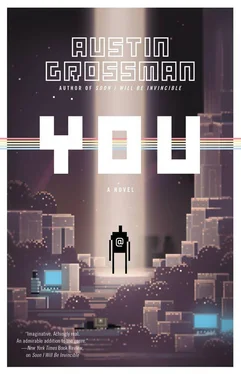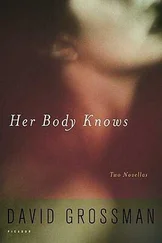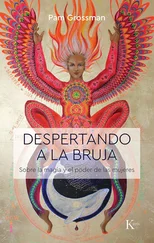c) Any time you killed a unit it restored two hit points, which meant that as long as you had enemies to kill you had nothing to worry about; in fact, it would prove terribly difficult to bring you down.
d) Once you picked up Mournblade you couldn’t drop it, ever.
There were a few more details to fill in. Mournblade could destroy objects such as siege works, but that wouldn’t restore life to the wielder. And there was a 10 percent chance that it would attack an adjacent friendly unit, even if you didn’t want it to.
Anyone foolish enough to pick up the cursed thing could be an unbeatable champion in war, but thereafter the logic of the item turned grim. You’d end up wandering Endoria in search of victims, ultimately turning on the few friends you had left. It was a tiny encoded curse, a few simple rules that, combined in a single item, gave rise to a lonely, haunted destiny.
It certainly hadn’t been in Simon’s manifest when the game began. It was there, it was in-fiction, it was surprising but hard to call illegal. Endoria was still Endoria, but nobody had bothered to delete Adric’s Tomb. All Simon did was find it again, navigating the twenty levels down, past the fearsome &s and putting Mournblade in one of his wanderer’s hands. Then he walked the chosen bearer back up and outside and Mournblade had returned to the world. Then the carrier made the long trek, a hundred hexes cross-country, to Darren’s encampment, murdering lesser units as he went to keep the wielder from expiring as a result of the curse.
Nothing was going to stop the accursed broadsword from reaching its target. The room fell silent, and Simon rested like a virtuoso violinist, letting the final notes of a plaintive, triumphant melody ring into silence. Darren looked as devastated as I’d ever seen him, but managed to shake Simon’s hand nonetheless. The victory stood; the game, and the long summer, were over.
The friendship never officially ended, but Simon and Darren didn’t talk much for a while. They nodded in the hallways, sure, but their collaboration had gone slack and awkward. Darren gravitated back to the tall, buzz-cut kids from the track team, to roughhousing and weekend parties, and Simon gravitated back to himself. But Darren’s father took pity on him, maybe, and set up an office for Simon in the garage, and bought him his own used C64. He sat up late that first Indian-summer night with the crickets buzzing. By November he was there every night, with the door closed and a space heater on, learning to code C properly and beginning what would become his imaginative lifework—the hundreds, maybe thousands of pages outlining the past and future histories of the Realms worlds. Time lines, city maps, histories, sagas, encyclopedic descriptions of imagined countries and planets, floor plans, character sketches. He developed a mild addiction to clove cigarettes. He once alluded to those months as the happiest in his life.
PART IV

THE THIRD AGE OF THE WORLD
The mild summer stretched on into September. Each day the clouds piled up and rolled over Cambridge like a slow, soundless wave, but there was no rain, only a faint haze that made objects and buildings seem to be enormous distances away.
The first alpha phase began on September 1, 1997, and was expected to run three or four months. Programmers would try to hack new features into the old engine under Lisa’s direction, while she got together the rendering module that would give Realms its bright, next-gen new look. Meanwhile, I would shepherd the other designers through building the first areas of the game to try to get something decently playable together—early versions of the game maps that we could run around in, testing puzzles and combat. By the end, we’d hope to have the first third of the game built.
Usually I would walk the two miles to work, letting cars whoosh past me. I thought ahead, mentally setting up an agenda for the morning leads meeting. It was an unfamiliar feeling, waking up with a place to go, a place I was actually beginning to comprehend and face without a sense of terror.
More than that, I was even questioning the assumption that I was, in my bones, a scared and anxious and miserable person. It felt like the days were almost supernaturally good, that I could wake up without the usual wave of terror, that the days were admixed with some foreign substance dripping into them, some animating essence, like the dragonborn races of Endoria, dragonborn days. I felt like I’d stumbled on one of the open secrets of the world. Why hadn’t I realized before that being a grown-up could be anything you wanted it to be?
We had our maps ready, neatly sketched out on graph paper. I’d done the forest area; Jared did the mines underneath, and Peter handled the nearby town. WAFFLE would generate low-level detail for us: it could do even more than that, but we wanted handcrafted content for this earliest section of the game. I’d printed out maps of Central Park and Disneyland; we’d try to imitate that ineffable quality of promise each pathway seemed to hold, curving out of sight in a deliciously inviting manner. Every grove, every crossroads needed to contain the potential seed for a decision or an adventure, or a way to decide something about yourself.
In my mind, it was all perfect. This would be the very last gasp of the Third Age, an age gone wrong, the quest for Mournblade all but abandoned.
The world of Realms would have become an old world by then, rich in history and magic, but the bright shine of the early Second Age would live on in half-forgotten stories. Now, the Heroes the world once revered would be seen only rarely. The humanoid races snap and squabble, and the great secrets seem to have been lost forever.
You’re given sparse clues about who you are and what you’re doing. You’re the youngest child of a minor house that has been losing power and influence for centuries. Its scattered descendants live in a forgotten backwater. The rare traveler that passes through brings news of a world going downhill.
You’re just this close to being nobody, a punk. Your family’s keep is not even a real castle, just a rough curtain wall of stone enclosing a stout four-story tower and a few wooden buildings—kitchen, pantry, eating hall. There’s a chapel for one of the Realms deities, I’d have to decide which—the harvest god, let’s say. At midwinter the villagers burn corn-husk effigies of the dark winter god, and in spring they carry offerings of the first fruits to the keep. You spend a lot of evenings just sitting by the fire in the bottom room of the square tower, listening to stories or some traveling joker on a lute, before climbing the rough stairs to lie shivering on a bed of rough matting.
You sigh through endless freezing winter services, painstakingly learning the runes of a prior culture out of a damp, ruined tome in preparation for your manhood ceremony, even though you’re not even the heir. Your three older brothers come first, but the eldest has taken an unlucky arrow through the eye at the Battle of Atrium, fighting for your third cousin Vellan in a political struggle you didn’t and don’t understand.
They come trooping home to tell you the fighting’s over and your people lost, and from then on everything gets worse. Your father drinks more, the House of Aerion demands a punishing tribute from those who rose against it, and brother number two (your favorite) has to ride two hundred miles to present himself as a squire-hostage at court.
You grow up riding in the forest in summer, shaking hands with village elders, and helping out at harvest time for lack of anything better to do. But more and more often you climb the stairs to the top of the tower and look out over the forest stretching out forever under a cloudless sky in summer, or into the misty rains in spring, dark green leaves out to where the hills meet gray sky. These times, when you’re alone, are the most perfect moments available to you. You wonder how brother number two is doing. You’ve never even heard of the Hyperborean Crown, or maybe you’ve seen one or two mentions of it in that old book, which has its own pedestal in the chapel. Once you had your coming-of-age moment, you never touched the thing again. It will probably sit unopened until your older brothers’ children have grown.
Читать дальше






![Ally Carter - [Gallagher Girls 01] I'd Tell You I Love You But Then I'd Have to Kill You](/books/262179/ally-carter-gallagher-girls-01-i-d-tell-you-i-lo-thumb.webp)






